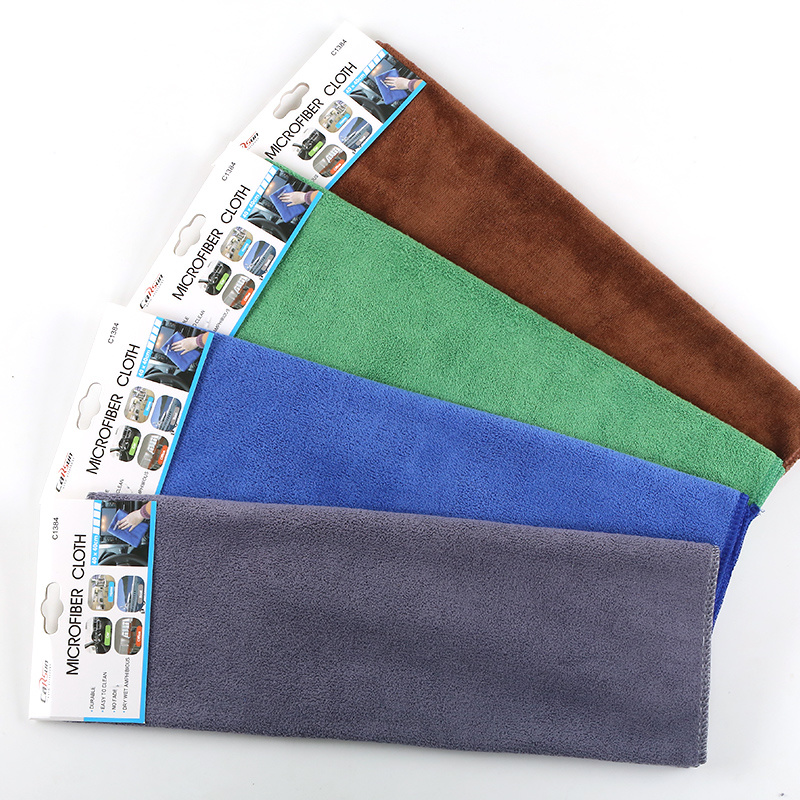Exploring Different Types of Microfiber Cloths for Car Washing Needs
Release time:
2025-08-16
Exploring Different Types of Microfiber Cloths for Car Washing Needs Table of Contents Introduction to Microfiber Cloths What is Microfiber? Advantages of Using Microfiber Cloths for Car Washing Types of Microfiber Cloths Suitable for Car Washing 1. General-Purpose Microfiber Cloths 2. Edgeless Microfiber Cloths 3. Polishing Microfiber
Exploring Different Types of Microfiber Cloths for Car Washing Needs
Table of Contents
- Introduction to Microfiber Cloths
- What is Microfiber?
- Advantages of Using Microfiber Cloths for Car Washing
- Types of Microfiber Cloths Suitable for Car Washing
- 1. General-Purpose Microfiber Cloths
- 2. Edgeless Microfiber Cloths
- 3. Polishing Microfiber Cloths
- 4. Window Microfiber Cloths
- 5. Microfiber Wash Mitts
- How to Choose the Right Microfiber Cloth for Your Car
- Maintenance and Care of Microfiber Cloths
- Common Mistakes to Avoid When Using Microfiber Cloths
- Frequently Asked Questions
- Conclusion
Introduction to Microfiber Cloths
In the realm of car maintenance, microfiber cloths have emerged as indispensable tools, particularly for washing and detailing vehicles. Their unique composition and structure enable them to lift dirt, grease, and grime effectively without scratching delicate surfaces. Understanding the different types of microfiber cloths available can significantly enhance your car washing experience.
What is Microfiber?
Microfiber is a synthetic fiber that is finer than a single strand of silk. Typically made from a blend of polyester and polyamide, microfiber cloths possess exceptional absorbency, softness, and durability. The fibers create a vast surface area, allowing them to trap and hold dirt particles more efficiently than traditional cleaning materials. This innovative fabric is lightweight, non-abrasive, and machine washable, making it a preferred choice for car enthusiasts and professionals alike.
Advantages of Using Microfiber Cloths for Car Washing
Using microfiber cloths for car washing offers a myriad of benefits. Some of the most notable advantages include:
Exceptional Dirt and Grease Removal
Microfiber cloths can attract and capture dirt particles, ensuring a thorough clean without leaving streaks or scratches on the vehicle's surface.
Highly Absorbent
Microfiber can absorb up to seven times its weight in water, making it perfect for drying off your car after washing and preventing water spots.
Versatile Usage
These cloths can be used for various tasks, including washing, drying, polishing, and even cleaning windows, making them a multi-functional tool in your car care arsenal.
Durability
Microfiber cloths are designed to withstand multiple washes without losing their effectiveness or shape, providing long-lasting value.
Eco-Friendly Option
Using microfiber cloths reduces the need for chemical cleaners, as their cleaning ability often eliminates the need for additional products.
Types of Microfiber Cloths Suitable for Car Washing
Selecting the right type of microfiber cloth is essential for achieving optimal results during car washing. Below are some commonly used types:
1. General-Purpose Microfiber Cloths
These versatile cloths can be used for various tasks, such as washing, dusting, and drying. Their balanced blend of softness and absorbency makes them a go-to choice for car washing and general cleaning tasks.
2. Edgeless Microfiber Cloths
Edgeless microfiber cloths are designed without stitched edges, reducing the risk of scratches during use. They are often favored for detailing and polishing cars, as they provide a smooth, safe surface for application.
3. Polishing Microfiber Cloths
Specifically designed for polishing, these cloths are ultra-soft and often have a plush texture. They are ideal for applying wax or sealant to your car's surface, ensuring a flawless, high-gloss finish.
4. Window Microfiber Cloths
Window-specific microfiber cloths are typically made with a unique weave that minimizes lint and streaks. They are perfect for cleaning car windows and mirrors, ensuring crystal-clear visibility.
5. Microfiber Wash Mitts
Wash mitts are designed to fit over your hand, making them easy to maneuver around the car's surface. They offer a combination of cleaning ability and protection, ensuring that your vehicle's finish remains intact during washing.
How to Choose the Right Microfiber Cloth for Your Car
Choosing the appropriate microfiber cloth can be a daunting task with so many options available. Here are some key factors to consider:
Purpose of Use
Identify the specific task you'll be using the microfiber cloth for—whether it’s washing, drying, polishing, or cleaning windows. This will help narrow down your choices significantly.
Material Quality
Not all microfiber cloths are created equal. Opt for high-quality options that feature split fibers, which enhance their cleaning efficacy.
Weight and Thickness
Microfiber cloths come in various weights and thicknesses. Heavier cloths are typically more absorbent, while lighter options may be better suited for detailing tasks.
Size
Consider the size of the cloth based on your hand size and the areas you’ll be cleaning. Larger cloths may be more efficient for bigger surfaces, while smaller ones can be better for intricate detailing.
Maintenance and Care of Microfiber Cloths
To ensure longevity and maintain the effectiveness of your microfiber cloths, proper care is essential. Here are some tips:
Washing
Wash microfiber cloths separately from other laundry to avoid lint transfer. Use a mild detergent without fabric softeners, as they can clog the fibers and reduce absorbency.
Drying
Air drying is preferable, but if you choose to use a dryer, opt for a low heat setting. High temperatures can damage the fibers and decrease their effectiveness.
Storage
Store your microfiber cloths in a clean, dry place. Avoid folding them in a way that creates creases, as this can damage the fibers over time.
Common Mistakes to Avoid When Using Microfiber Cloths
Understanding the common pitfalls associated with microfiber cloth usage can improve your car washing experience:
Using Fabric Softeners
Avoid fabric softeners as they can coat the fibers, making them less effective at trapping dirt and moisture.
Mixing with Other Fabrics
Do not wash microfiber cloths with cotton or other materials that produce lint, as it can compromise their cleaning ability.
Neglecting to Rinse
It's crucial to rinse microfiber cloths thoroughly after use to eliminate any trapped dirt and grime, ensuring they are ready for the next wash.
Frequently Asked Questions
1. Can I use microfiber cloths on all surfaces of my car?
Yes, microfiber cloths are safe to use on various surfaces, including paint, glass, and chrome, without causing scratches.
2. How often should I replace my microfiber cloths?
With proper care, microfiber cloths can last for many washes. However, if they become worn, frayed, or less effective, it’s time to replace them.
3. Are all microfiber cloths the same?
No, microfiber cloths vary in quality, texture, and purpose. It’s essential to choose the right type for your specific car washing needs.
4. Can I use microfiber cloths for other cleaning tasks?
Absolutely! Microfiber cloths are versatile and can be utilized for household cleaning, dusting, and even personal care.
5. What’s the best way to dry microfiber cloths after washing?
Air drying is recommended, but if using a dryer, ensure it’s on a low heat setting to avoid damaging the fibers.
Conclusion
Microfiber cloths are invaluable tools for anyone dedicated to maintaining the cleanliness of their vehicles. Understanding the various types and proper care techniques can ensure that you choose the right cloths to meet your car washing needs. By investing in high-quality microfiber options and following best practices for usage and maintenance, you can achieve a pristine finish while prolonging the life of your vehicle’s surfaces. With this guide, you are now well-equipped to select and utilize microfiber cloths effectively, ensuring your car remains spotless and well-cared for.
Keywords:
RELATED INFORMATION






